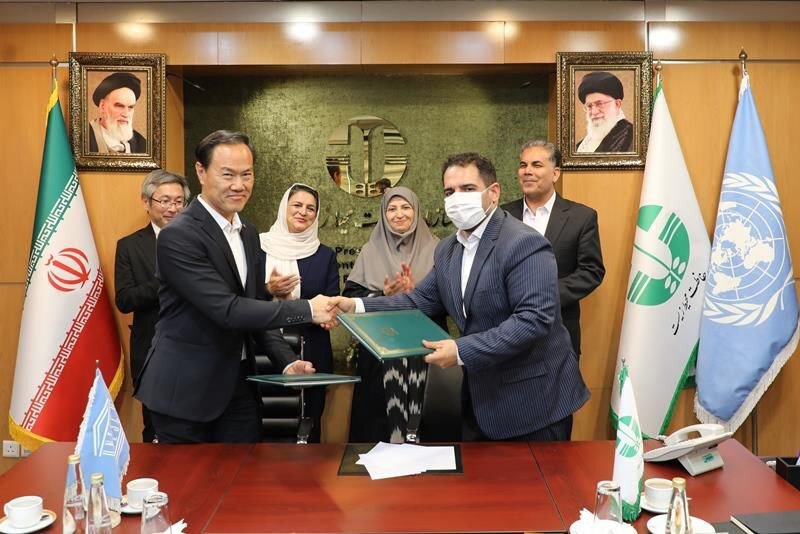Iran, Japan, UNESCO join hands to address natural hazards, boost climate change resilience

TEHRAN – The international project of managing natural disasters and enhancing resilience to climate change impacts was inaugurated officially by representatives from the Department of Environment (DOE), the Embassy of Japan, and the United Nations Educational, Scientific and Cultural Organization (UNESCO).
Funded by Japan, the project’s document was signed on Monday by Ieng Srong, the head of the UNESCO Tehran Office, and Arman Khorsand, the head of the international affairs and conventions office of the DOE.
The main objectives of the project include developing flood hazard maps, establishing early warning systems, assessing and managing agricultural drought risk, and empowering local communities, particularly women and youth, to effectively prepare them to respond to disasters and crises, DOE website reported.
The project also aims to develop scientific and technical infrastructure in crisis management with the prospect of becoming a regional model for combating climate change effects.
Referring to the challenges of climate change, Shina Ansari, head of DOE, highlighted the significance of public participation, indigenous knowledge, and modern technologies in disaster risk reduction.
The head of the UNESCO Tehran Office, Ieng Srong, for his part, lauded environmental cooperation between the two organizations and underscored the importance of prioritizing science and raising awareness in the fight against climate change.
Climate change impacts
By affecting rainfall patterns, pollination, flowering, and even harvest time, climate change has greatly affected the agriculture sector and food security in many countries, most significantly in Iran, according to the country’s former permanent representative and ambassador to the Food and Agricultural Organization (FAO).
In some parts of the country the air temperature has increased by 2 degrees while the highest temperature set in the world amounts to 1.5 degrees, IRNA quoted Mohammad-Hossein Emadi as saying.
Studies have shown that for a degree increase in temperature on the planet, the amount of evaporation rises by 23 percent which negatively affects agriculture and animal husbandry sectors.
Climate change also alters plant growth patterns, disturbing the nutritional values of crops, he stressed.
In addition, unexpected effects of climate change like drought, flood, and landslides have all affected food security.
Reinforcing co-op can improve crisis management
In September 2024, the former head of the crisis management organization said reinforcing cooperation among the ECO member states in prediction, prevention, preparation, response, reconstruction, and rehabilitation fields can greatly boost the efficiency of crisis management.
“Currently, the world is facing severe challenges, the most important of which include climate change, water scarcity (particularly fresh and safe water), lack of green spaces, and desertification, IRNA quoted Mohammad-Hassan Nami as saying.
Regarding the availability of valuable technologies in crisis management, Nami proposed the appropriate use of intelligent systems for correct data analysis to be put on the agenda to further advance the goals of the countries.
The official noted that access to authentic and reliable information related to risks is the basis for making quick, accurate, effective, and timely decisions in handling emergency situations and reducing financial and life losses. However, a substantial part of the risks is not limited to geographical borders.
It is essential for ministries and emergency organizations of the ECO member countries to act in the form of coherent information systems and intelligent systems to timely analyze and evaluate data, and issue warnings to responsible organizations.
MT/MG
Leave a Comment